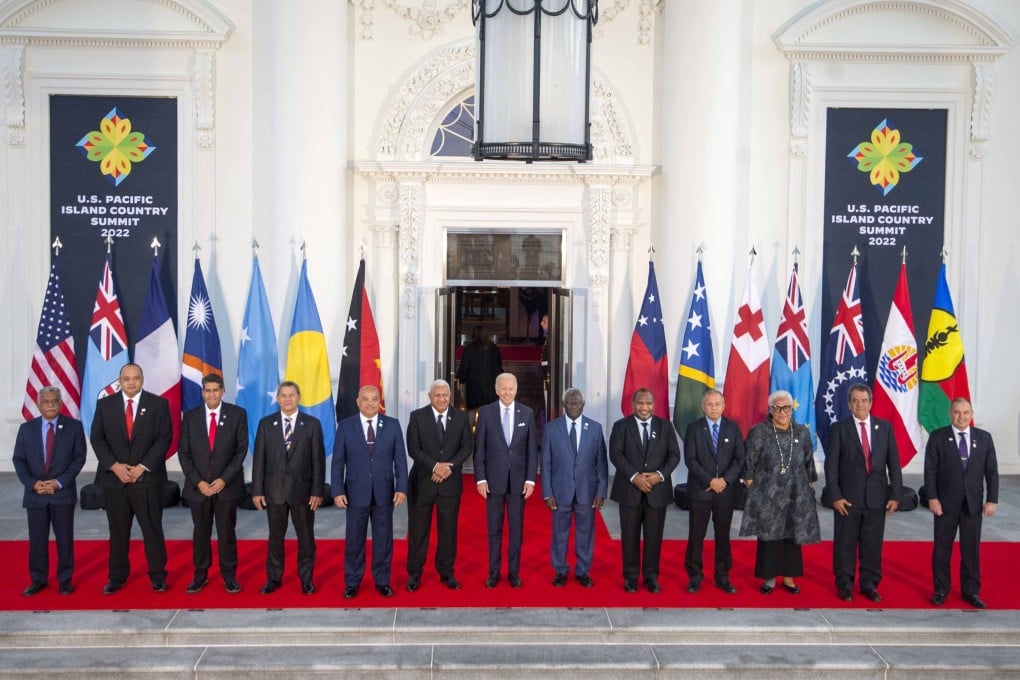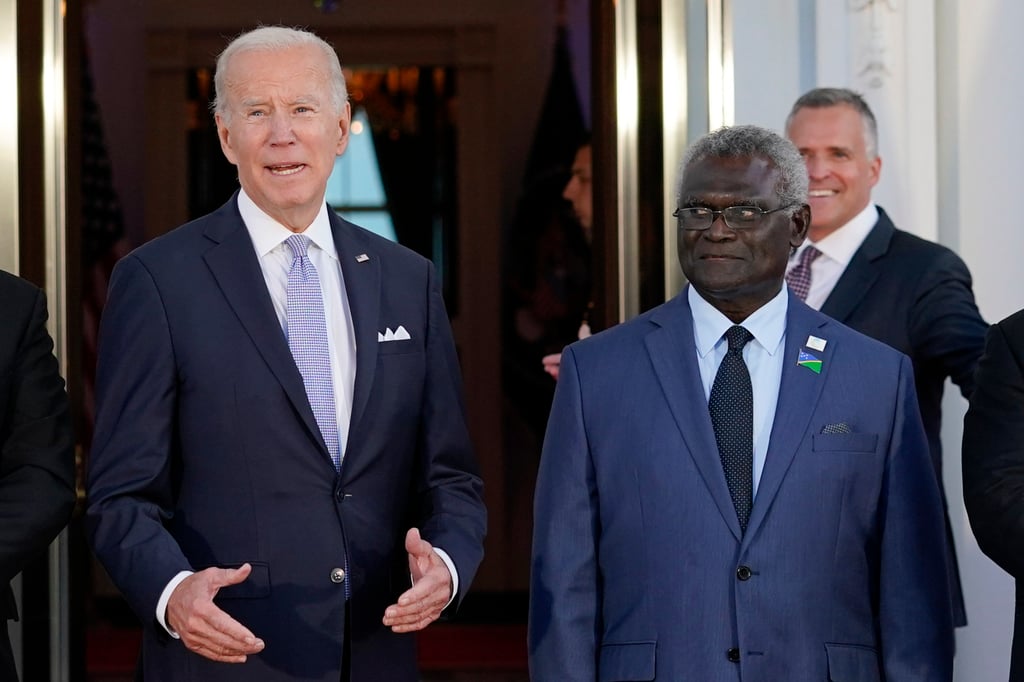As US Congress debates budget, Pacific island nations are watching with concern
- US President Joe Biden has pledged generous funding for tuna treaty and other regional initiatives in a bid to offset China’s growing influence
- But Republicans are looking to make cuts in foreign aid and the Pacific Partnership might be a victim, experts say

Six months after US President Joe Biden hosted over a dozen Pacific leaders and envoys at the White House and pledged generous funding, experts say the region is carefully watching for the follow-through as Congress haggles over slashing foreign aid.
Announced in September, the Pacific Partnership Strategy – intended to help the US catch up with China’s growing influence in the region – committed to spending more than US$800 million on priorities like climate change, fishing disputes and maritime security.
A majority of the funding was US$600 million in ramped-up aid for renewing the South Pacific Tuna Treaty, nearly tripling the US contribution to US$60 million annually for the next 10 years.
Originally signed in 1988 between the US and 16 Pacific Island nations and territories, the treaty promotes the economic development of fisheries and outlines the rules under which US vessels can enter and fish in the exclusive economic zones of the Pacific islands.

The treaty thus provides Washington broader rights of maritime surveillance, while acting as an economic lifeline for some Pacific signatories that earn about 40 per cent of their national income from tuna fishing licenses and access fees.